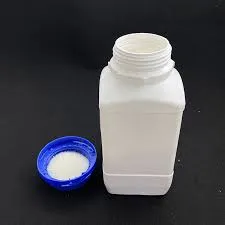Pentoxifylline An Overview of Its Uses and Mechanism
Pentoxifylline is a methylxanthine derivative that has demonstrated significant utility in various medical conditions, predominantly in improving blood flow and reducing inflammation. Originally introduced in the 1970s, this drug has been extensively studied and utilized for its therapeutic benefits in different clinical settings, particularly in vascular and hematological disorders.
The primary mechanism of action of pentoxifylline is its ability to enhance erythrocyte (red blood cell) deformability and thereby improve microcirculation. By reducing blood viscosity, pentoxifylline helps to increase the flexibility of red blood cells, making it easier for them to pass through narrow capillaries. This physiological effect is particularly beneficial in conditions such as peripheral arterial disease (PAD), where impaired blood flow can lead to pain, ulcerations, and, in severe cases, limb loss. As such, pentoxifylline is often prescribed to alleviate symptoms of claudication—pain in the legs induced by insufficient blood flow during physical activity.
In addition to its hematological effects, pentoxifylline possesses anti-inflammatory properties. It has been observed to reduce levels of pro-inflammatory cytokines and inhibit the synthesis of tumor necrosis factor-alpha (TNF-α), which plays a crucial role in inflammation. This anti-inflammatory effect makes pentoxifylline a potential treatment option for conditions characterized by excessive inflammation, such as Crohn's disease and certain dermatological disorders like leg ulcers and chronic venous insufficiency.
Pentoxifylline’s role in treating liver diseases, particularly alcoholic liver disease and hepatitis, has gained attention as well. Studies have shown that pentoxifylline can improve liver function tests and even enhance the quality of life for patients suffering from advanced liver disease. The drug's ability to reduce portal hypertension by improving blood flow constitutes another therapeutic angle in managing liver conditions.
pentoxifylline drug

Despite its benefits, pentoxifylline is not without side effects. Common adverse reactions include gastrointestinal disturbances, such as nausea and dyspepsia, as well as headaches and dizziness. More serious side effects are rare but may include bleeding abnormalities, which necessitate monitoring, particularly in patients on anticoagulant therapy. As with any medication, clinical judgment and patient-specific factors should guide the decision to use pentoxifylline.
Dosage and administration of pentoxifylline require careful consideration. The drug is typically administered orally, with an initial dose often starting at 400 mg three times a day. This dosage may need to be adjusted based on the patient's response and tolerance. It is crucial for patients to adhere to prescribed dosages and discuss any concerns or potential interactions with healthcare providers to optimize the therapeutic outcomes.
In summary, pentoxifylline represents a multifaceted therapeutic agent with a broad spectrum of applications, particularly in managing conditions related to inadequate blood circulation and inflammatory processes. While its benefits are well-documented, practitioners must remain vigilant about the potential side effects and contraindications associated with its use. As ongoing research continues to explore pentoxifylline's full therapeutic potential, it remains an important drug in the armamentarium for treating various vascular and inflammatory disorders.
In conclusion, pentoxifylline serves as a valuable tool in modern medicine, particularly for patients suffering from conditions that hinder proper blood flow and contribute to chronic inflammation. Its unique properties not only help manage symptoms effectively but also contribute to improved quality of life for many patients. Continued research and clinical trials are essential to fully elucidate the broader impacts and applications of this unique drug, ensuring that healthcare providers can offer the best possible care to their patients.

